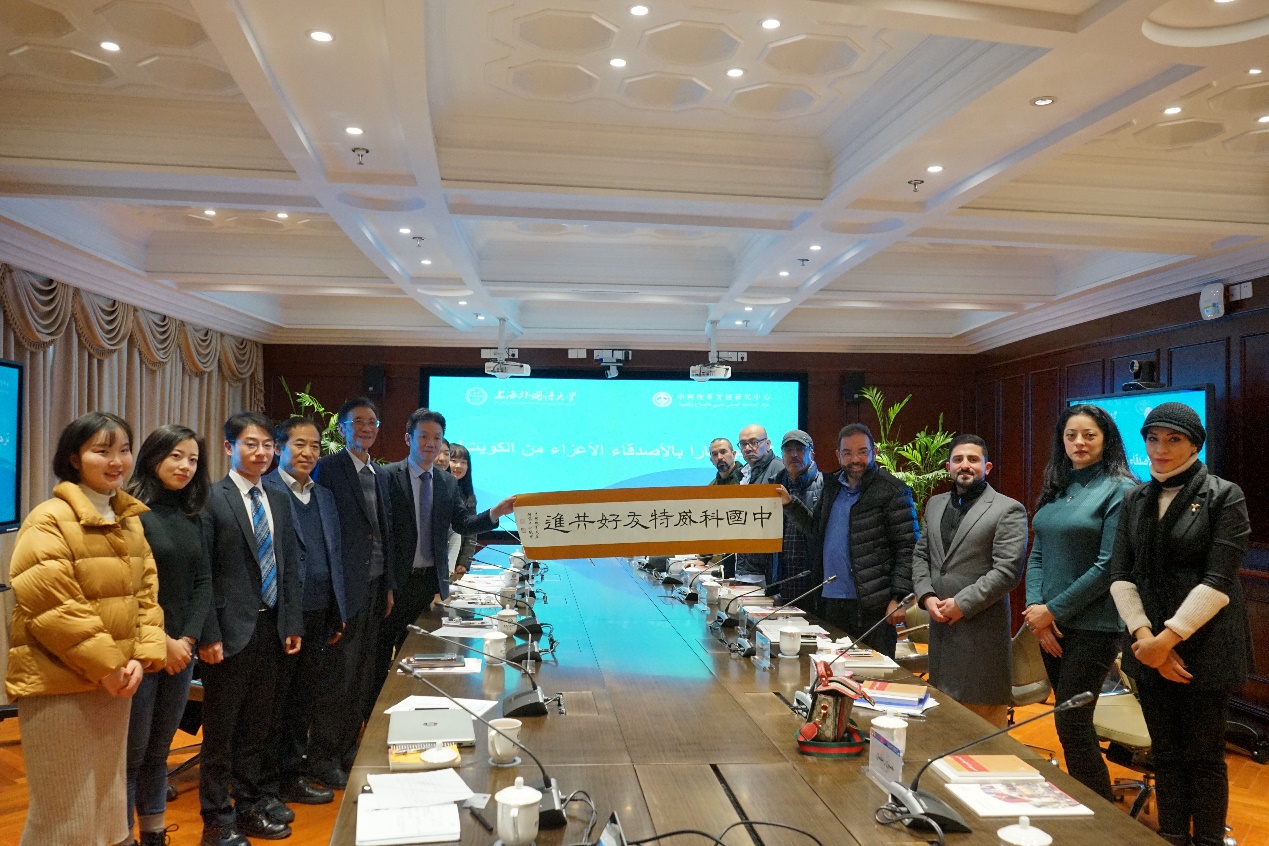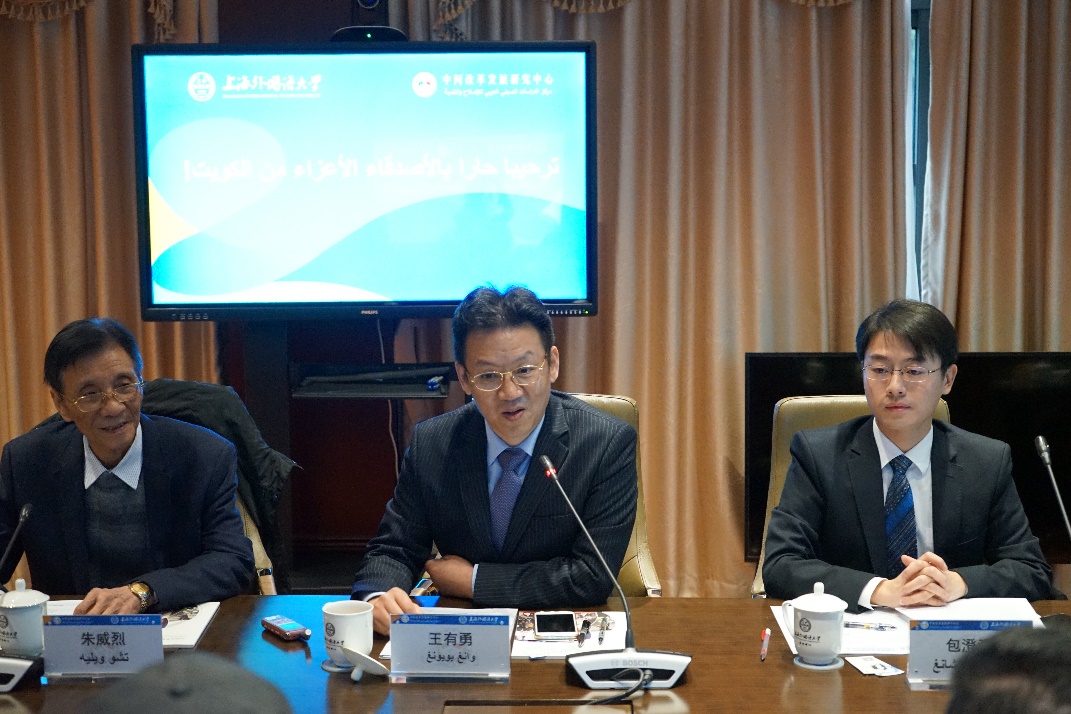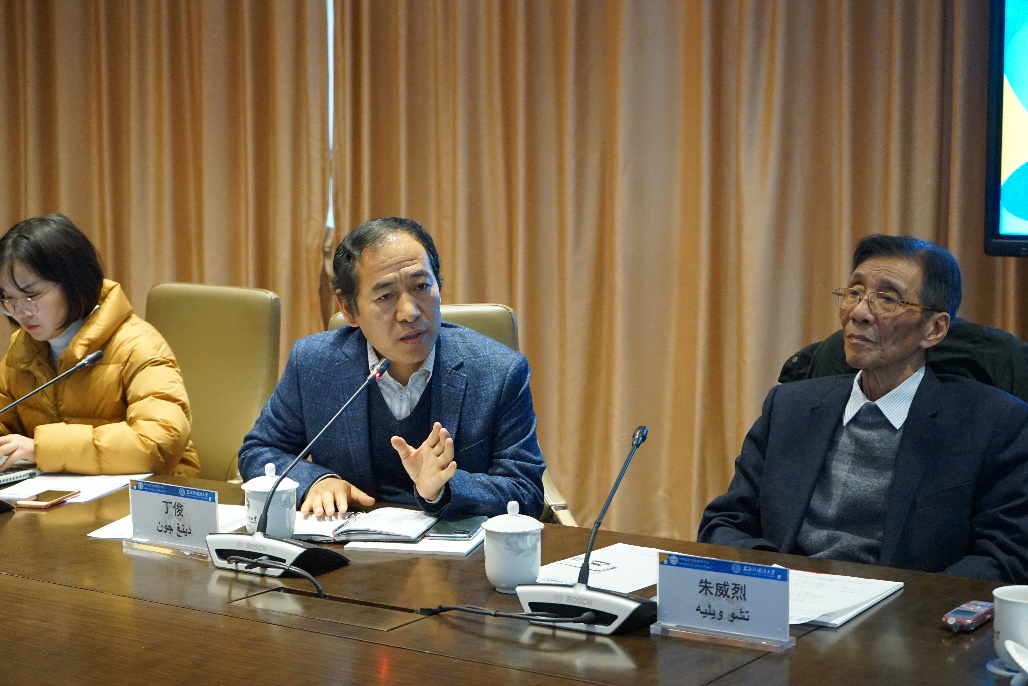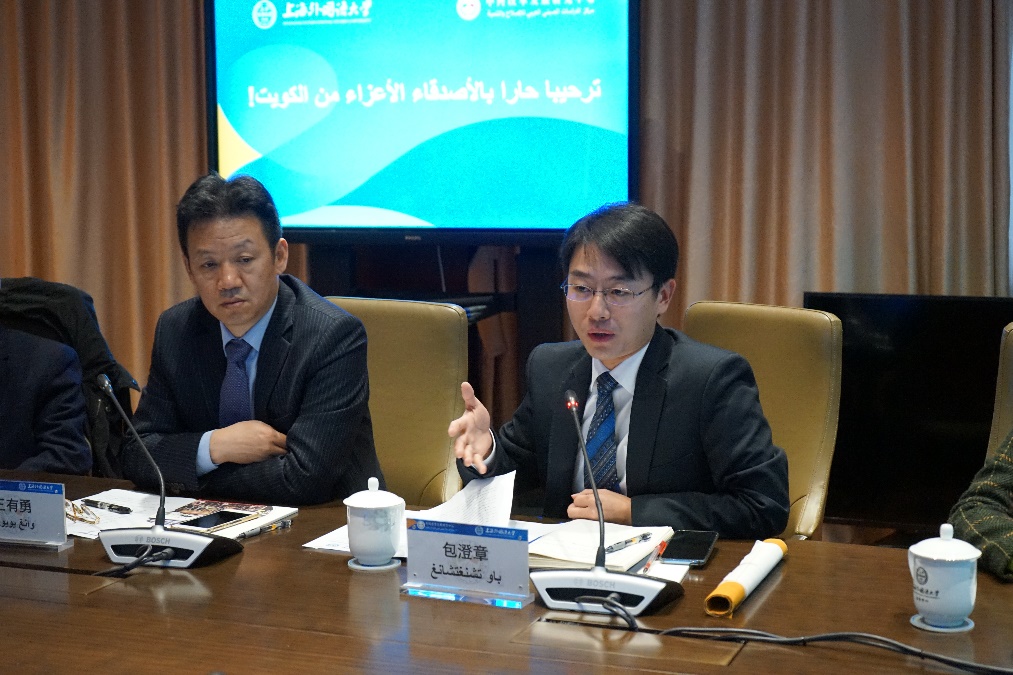On the afternoon of December 18, CARC welcomed the Kuwaiti media delegation at Hongkou Campus of SISU. The delegation consisted of 10 representatives from the Kuwaiti mainstream media Kuwait News. Professor Zhu Weilie, director of the expert committee of CARC; Professor Wang Youyong, deputy director of the Center; Professor Ding Jun from Middle East Institute and vice chairman of the Shanghai Islamic Association; Deputy Researcher Bao Chengzhang of Middle East Institute and the visiting delegation conducted in-depth exchanges on topics such as China-Kuwait relations, cooperation in the Silk City and the Five Islands, the Gulf situation, and media cooperation between the two countries.

Professor Zhu Weilie first introduced the development history of the Center and the construction of the Four Major Platforms to the delegation. Since its establishment in 2017, the Center has successfully held ten seminars for Arab officials and two China-Arab reform and development forums, and received several former political leaders of the Arab countries, including the former Prime Minister of Egypt and the former Speaker of Sudan, as well as many visiting delegations and visiting scholars. Professor Zhu pointed out that China has always emphasized Kuwait's important role and influence in the Gulf region, and believes Kuwait plays an active role in the region. He hopes that China can sign free trade agreements with GCC countries in the future. China is a good friend and partner of Kuwait, and we encourage media to report objective and positive images of the two countries.

Professor Wang Youyong introduced the achievements of the “Belt and Road” Initiative in the past six years. This is also a response to the concerns of the Kuwait side. He pointed out that the Belt and Road construction has now achieved Four Transformations, which is, the development from bilateral cooperation to multilateral global cooperation, from the construction of economic corridors to the implementation of physical projects, from the expansion of infrastructure construction to diversified cooperation areas and from the economic cooperation to the construction of a community of shared future for mankind. Professor Wang said that China and Kuwait should strengthen cultural exchanges and educational cooperation. It is hoped that SISU will sign a cooperation agreement with Kuwait University in the future, and Kuwait can encourage universities in Kuwait to open department of Chinese languages and literature.

Professor Ding Jun explained the safety and security issues of the “Belt and Road” construction concerned by the delegation. Safety and development are in a dialectical and unified relationship. The important prerequisite for China's great development achievements is stability and security. In the Middle East Security Forum, China advocates a new security concept of common, comprehensive, cooperation and sustainability, and builds a new sustainable regional security architecture.

Associate researcher Bao Chengzhang emphasized that improving and promoting youth's sense of gain is particularly important in the development of the country. He took the development of China's electronic payment method as an example to show that young people feel tangible benefits from the reform and development of the country. With the sense of gain, the idea of terrorism can be prevented from breeding. It is key to grasp the young generation, so development and security are mutually reinforcing.

The delegation was very concerned about the cooperation between the two countries in the Silk City and Five Islands project. Youssef Malzug, the editor-in-chief of the Kuwait News expressed the hope that under the leadership of the new Kuwaiti Cabinet, the relevant legislation and system of the project can be accelerated, which also requires China's cooperation and assistance. Editorial Director Mohamed Husseini said that Silk City occupies an important strategic position and will become a new economic pillar of Kuwait, hoping to attract China’s investment. In addition, the delegation also asked questions about the implementation and challenges of the Belt and Road Initiative, cooperation with think tanks and language learning. Adnan Rashid, deputy editor-in-chief, said that the Kuwait media will increase their efforts to publicize Chinese culture and tourism resources and strive for the true and positive image for both sides.

At the beginning of the discussion, the delegation watched the Center’s promotional video in Arabic version; after the meeting, the Center presented to delegation the books “New Concept, New Ideas and New Strategies for Governing the Country with Comrade Xi Jinping as the Core (Arabic Edition)” and “Xi Jinping Telling Stories”, also the calligraphy works of “ China-Kuwait Friendly Progress .
In July last year, Kuwait Emir Sabah paid a state visit to China, and the two sides established a strategic partnership. This is the third time that the Center has received a Kuwaiti delegation. In October 2018, the Center exchanged ideas with the Kuwait University think tank delegation and the Kuwait National News Agency media delegation. In June of this year, CARC received a Kuwaiti youth delegation. In the new era, the media shoulders the important mission of telling the story of the reform and development of the two countries and enhancing China-Arab friendship. This exchange is a positive effort to promote the people-to-people exchanges between China and Kuwait.
